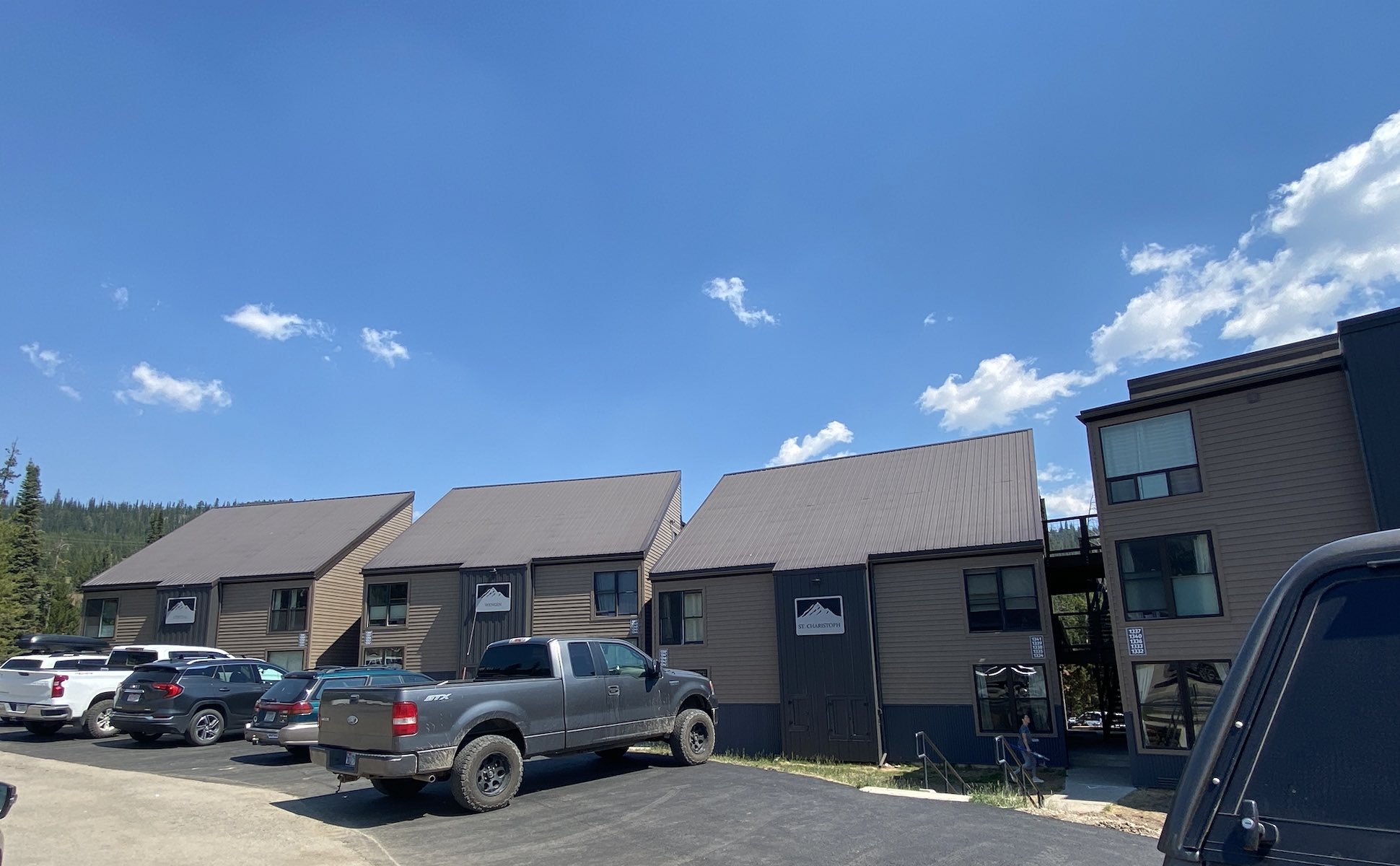Big Sky businesses, groups seek ‘balance’ in short-term rental market
Editor’s Note: This is the second installment in a two-part series on housing and the short-term rental market in Big Sky. Read the first installment here.
This story has been edited to say that MJ Matute bought her first Hill Condo by herself.
By Bella Butler EBS STAFF
BIG SKY – Before 9 a.m. one weekday morning, MJ Matute drums her fingers against a paper coffee cup in the Huntley Lodge lobby at Big Sky Resort. She’s taking a quick break from her job as the director of talent and culture for food and beverage at Big Sky Resort. Matute arrived at the resort in 2005 from Peru on a J-1 visa, a nonimmigrant visa that promotes cultural exchange. Sixteen years later, she’s not only a Big Sky resident but also a Big Sky homeowner.
In 2016, Matute bought a Hill Condo studio and rented it to a local tenant until they sold it this year. In 2018, Matute and her boyfriend, Michael Shepard, bought a second Hill Condo, this time a loft they planned to eventually live in. They remodeled the condo themselves and put it on the long-term rental market.
In April of this year, Matute sent a text to the loft’s most recent tenants, Colin McNamara, his girlfriend and their roommate letting them know she was losing money renting the condo to them for $1,900 a month, and that she would not be renewing the lease. Instead, the condo was going on the short-term market.
“At the beginning, [$1,900] was just covering the bills,” Matute said of the loft. As property taxes and homeowners association fees increased and the Hill Condos undertook a siding project that cost owners $18,726, Matute says she was paying for the loft out of her pocket.
According to Matute, she chose to list the loft on AirBnB, a popular short-term rental website, to keep the property in good shape and to stay out of “the hole.”
“I’m done working three to four jobs,” she said. “I did it for 15 years.”
For homeowners like Matute, renting on the short-term market has become a way to afford living in Big Sky, and for visitors, this avenue helps supplement lodging supply with a rapidly growing demand. That reality, however, doesn’t make a difference for tenants like McNamara, who came within inches of having to leave Big Sky when he struggled to find new housing.
The Big Sky Community Housing Trust, which recently launched a program on Aug. 1 offering financial incentives for homeowners who agree to long-term leases, acknowledges that while the short-term rental market contributes to the housing crisis, it also plays an important role in the community.
“We’re a vacation destination,” said Laura Seyfang, executive director of the housing trust. “So short-term rentals, we need them here … but to have no available housing for local workers is a huge concern. So there needs to be some balance.”
In addition to providing income for homeowners along with opportunity for the several property management companies in town, the short-term market contributes significant revenue to both the Big Sky community and the state of Montana.
Between July 2020 and May 2021, nearly 24 percent—or about $2.1 million—of resort tax collected came from short-term rentals. Of the roughly $7 million allocated to community projects in June, $705,000 was distributed to projects related to local and workforce housing. The board denied a $1.1-million request from the Housing Trust to fund a land acquisition for future workforce housing, but a joint subcommittee is currently considering how to support the project.

In Montana, short-term rentals—those less than 30 days in length—are required to charge a 4 percent lodging facilities use tax plus a 4 percent sales and use tax. While the state doesn’t break down total lodging tax income by type of accommodation, Big Sky is the top contributor of lodging tax in the entire state. Short-term rentals are a part of that.
In 2020, Big Sky raked in more than $350,000 in lodging facilities use tax for the state, or roughly 17 percent of total collections from Montana cities. Conversely, Big Sky makes up 2.8 percent of the state’s population.

And yet, the Housing Trust currently manages a waitlist of more than 100 individuals seeking housing in a town that has zero vacancy among long-term rentals and an estimated 1,200 units on the short-term market.
While other mountain towns in the West like Telluride, Steamboat Springs and Crested Butte are considering regulatory measures like short-term rental caps and additional fees, Big Sky lacks the municipal leadership to impose the same restrictions through the same avenues.
Steve Johnson sits on the Big Sky Planning and Zoning Advisory Committee, the entity that advises the Gallatin County Planning and Zoning Commission. Johnson says it’s “highly unlikely” that the committee would take action on short-term rental regulation and that the ball would be in the court of Big Sky’s numerous HOAs.

Montana legislation passed in 2019 virtually ties the hands of HOAs on the matter. Senate Bill 300 prevents HOAs from “imposing more onerous restrictions on a property owner’s basic rights than when the property owner acquired the property.” According to the bill, one of those “basic rights” is the right to rent the property—for any amount of time.
“You have to try to look for those creative things that exist because we don’t have a city government,” Seyfang said. “We can’t do what a lot of the other towns have done.” The housing trust’s most recent “creative thing” is its rent local incentive, which pays homeowners up to $14,500 per lease to rent long-term.
Amanda Doty, who has worked in property management in Big Sky since she moved to town in 2015, opened her own property management company this past spring and subscribes to Seyfang’s credo on balance.
“I believe there are neighborhoods in Big Sky that are better suited for local housing,” Doty said in a Aug. 10 interview with EBS. “And if we’re going to survive as a community and be successful, we need to make it a point to find housing for the people that are running this town.”
Doty manages 10 short-term rental properties at her business, Wilson Peak Properties. In June, she reached out to the Housing Trust for information on the rent local program to pass along to prospective clients who own units in neighborhoods she considers to be better suited for local housing—mostly those already largely inhabited by locals.
“I am willing to lose that business in order to help the community and help the housing trust,” Doty said.
Doty doesn’t purport to know definitively whether or not this is the way forward. She empathizes with property managers whose priority is to look out for the client and says the short-term market isn’t fully to blame.
But just like the Housing Trust’s incentive program seeks to do until its remaining $53,600 budget dries up and they return to the community with hopeful requests for more, Doty also finds it important to strike equilibrium in the community. This, she says, will best serve both the tourists that are the economic lifeblood of the resort town as well as the community members that take care of them.
“In order for us to continue moving forward with the growth that we’re seeing in Big Sky,” she said, “we have to create the balance in the housing situation.”











